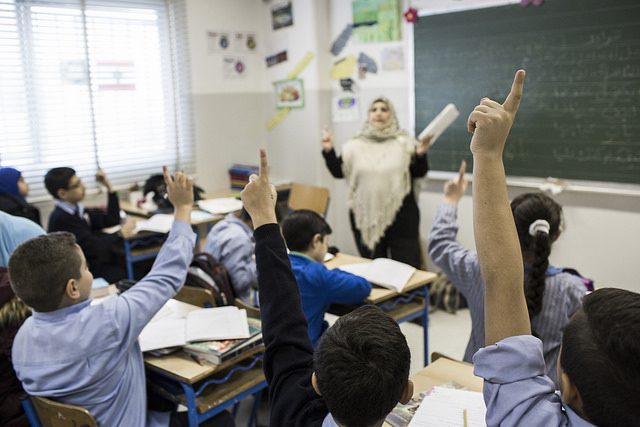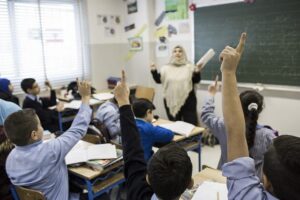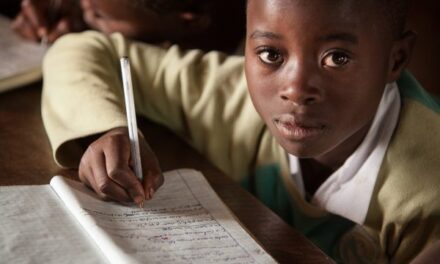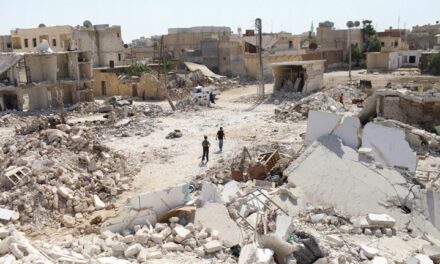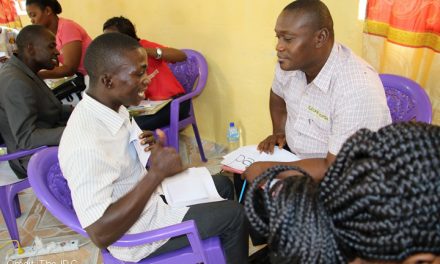This blog was written by Dr Ruth Naylor, Senior International Adviser, and Lina Aghajanian, Project Manager, from Education Development Trust. It was originally published on the Education Development Trust website on 23 March 2018 and is reposted here with permission.
Lina heads up our work on the ground in both Lebanon and Jordan to improve the quality of education for Syrian refugee children while Ruth is Education Development Trust’s expert on girls’ education, education in conflict-affected countries and monitoring and evaluation in education development. Ruth, in partnership with IIEP UNESCO, co-authored our latest research report, Teachers of refugees: a review of the literature. Lina and Ruth ask who is best placed to teach refugee children: teachers who are refugees themselves or teachers from the host country? The question is complex and it seems evidence is lacking – and yet essential.
Khaled (not real name) is a Syrian refugee teacher who has been living in Lebanon for the past five years. As a refugee, he is unable to work for Lebanese state schools, so he counts himself lucky to have found a teaching role at an NGO that provides schooling to Syrian refugee children, helping them to transition into Lebanese public schools. Being a refugee helps Khaled empathise with the difficult conditions and psychosocial trauma that the children are facing. Khaled receives an incentive salary from the NGO, but unfortunately this is not enough to support his family and is also somewhat risky since the NGO is dependent on receiving private donations to keep its schools running. In addition to working a long day at the NGO (he teaches in the morning and afternoon shifts), he delivers private tutoring to Lebanese students in the evenings and weekends to earn some extra income. To improve his future career prospects, Khaled is working towards an MA in education management & leadership at a Lebanese university. Despite the challenges he is facing, Khaled is a passionate and enthusiastic educator and it’s such an inspiration to see him and other teachers like him doing all that they can to provide an education to some of the world’s most vulnerable children.
Who are the best teachers for refugees?
The quality of education depends on the quality of the teachers. But who are the best teachers for refugees? There is a strong case for arguing that teachers who are themselves refugees, such as Khaled above, are best placed to teach refugee children- they share the culture, language and experience of their students. And many like Khaled are highly motivated and committed to providing a quality education for refugee children.
There is also a case for drawing on national teachers to educate refugees. National teachers tend to be better qualified to teach the national curriculum of the host country and they can help refugee children to develop skills relevant to life in the host country, which for many refugees is likely to be home for the foreseeable future.
Mainsteam integration or not?
There is a global policy drive, led by international actors such as the UNHCR, to ensure that refugee children are integrated into the mainstream education system of the host country, rather than taught separately in parallel refugee schools. This provides a much more sustainable and long-term solution but often means that in practice refugees only option is to be taught by national teachers in national schools. With donor funding channelled towards supporting national systems, less funding is available for the type of NGO run school where Khaled teaches.
The laws, policies and practices that determine who teaches refugees are complex. Consideration of who make the best teachers of refugees is often low on the agenda, not least because there is little evidence available to answer this question. So as a first step in building the evidence base, Education Development Trust has joined forces with UNESCO IIEP to review the current literature on who teaches refugees.

